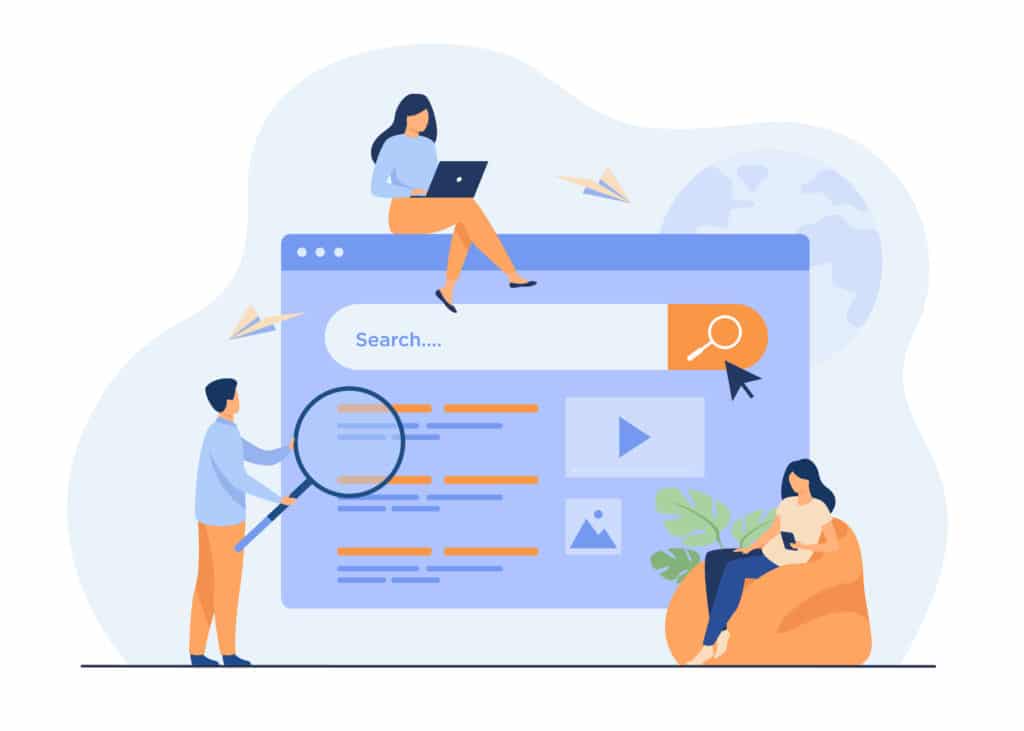 It’s hardly news to say that search engine optimization (SEO) is always changing. Marketers realize that the programmers at Google are constantly tinkering with their search algorithm, necessitating a gradual adjustment of best practices to bring visitors to their websites.
It’s hardly news to say that search engine optimization (SEO) is always changing. Marketers realize that the programmers at Google are constantly tinkering with their search algorithm, necessitating a gradual adjustment of best practices to bring visitors to their websites.
What many aren’t aware of, however, is the much bigger shift in search marketing that isn’t just on the horizon but already happening. And once it’s complete, it is likely to benefit a small handful of businesses while negatively impacting the others in a huge way.
What is this use shift? It’s the move – by Google and the other search engines – away from evaluating websites through traditional indicators like keyword matching, domain age, and backlink count. Increasingly, search algorithms are taking bigger, harder-to-measure factors like relevance and trust into account.
You might be wondering how Google measures those less-quantifiable qualities on a website. That’s the million-dollar question, of course, but it seems to come down to a few things. Let’s look at each one in turn…
Your Website Content Context
As search engine optimization progresses, it’s going to be less and less about stuffing keywords or specific bits of anchor text on a page. Instead, it’s going to be about the type, amount, and quality of content you have on all your pages. And, the relevance of those pages to each other will be scrutinized by search spiders as well.
There is a simple reason for this: the internet has gotten too big. The best website for a searcher might not be the one that has the exact text match phrase in a headline. So, Google and the other engines are getting smarter about “reading” content and finding connections.
Authority on a Searchable Subject
 Authority, which is just an SEO term for trustworthiness, used to be based on things like domain names, domain age, and backlinks. The theory was simple: if a website had dozens of other websites pointing to it, then it must be reputable.
Authority, which is just an SEO term for trustworthiness, used to be based on things like domain names, domain age, and backlinks. The theory was simple: if a website had dozens of other websites pointing to it, then it must be reputable.
As with text matching, webmasters abused this to the point that most backlinks now have very little value. To find reputable web results, search spiders now have to look for indications like social content and commenting citations for articles and statistics, and online reviews. These are all more reliable signs of good business, and good information, than backlinks, ever were.
Website Visitor Engagement
When you think about it, the easiest way to tell whether a website has value or not is to see whether searchers stay there after clicking through to a page. So, that’s exactly what Google’s programmers are starting to do.
By studying visitor engagement – and specifically things like the amount of time spent on a page, the number of links that were followed internally, etc. – search engine programmers can quickly separate the best parts of the web from all the others. Then, they can send users to destinations that are preferred by real people. Naturally, that favors those who’ve built clean, easy-to-navigate websites.
Old SEO Doesn’t Work the Way It Used To
 Sharp business owners will have noticed that these three factors are a big departure from the things we used to think about as making for “good SEO.” Gone are the specific keyword densities or search term placements. Instead, the focus is on usability, helpful content, and visitor response.
Sharp business owners will have noticed that these three factors are a big departure from the things we used to think about as making for “good SEO.” Gone are the specific keyword densities or search term placements. Instead, the focus is on usability, helpful content, and visitor response.
In a certain sense, things have to be that way. Too many people have been building websites that look good to Google’s search engine spiders but don’t do much for actual searchers. Now, the company is using different formulas – not to mention advanced forms of artificial intelligence – to compensate for the issue that was created.
As with most major industry shifts, the changes feel slow until they arrive all at once. Then, millions of small business owners (and more than a few web designers) are going to be wondering why their sites don’t rank anymore. When that happens, which group will you be in?
Are You Ready for the Future of Search and Online Marketing?
For some business owners, online marketing seems like a never-ending challenge to catch up with the pack. But it doesn’t have to be that way. Contact us today to schedule a free consultation and see how we can move you to the front of the line with your web design, social media, search engine optimization, and paid ad campaigns!
